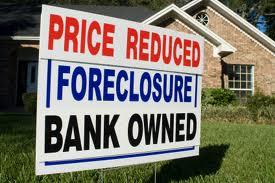
It's behind a subscribrer wall, but, if you are interested in "the foreclosure crisis," or "the mortgage meltdown," or whatever you want to call it, you should check out this article, by Tad Friend, in the current New Yorker.
Millions of Americans--one in five "homeowners," Friend reports--are still underwater on their mortgages. This would explain why, where I work, in the Hennepin County Recorder's Office, people joke darkly about the ongoing foreclosure "crisis." Is it really a crisis if it goes on and on and on, year after year, sheriff's sale after sheriff's sale? People who fell into a health crisis the year the housing bubble burst have by now either gotten well or died. While the number of foreclosures is down somewhat, we'd still be breaking records if it weren't for last year, and the year before that, and a couple of years before that.
There are many culprits but near the top of the list is the practice of selling loans on the secondary market, where they are pooled and "securitized." (When you have to make up verbs to describe what is going on, beware of shenanigans!) You could get a mortgage from anyone, including an originator who was a half continent away and had no intention of even inspecting the property that was to be collateral for the loan. Since the loan was headed to Wall Street, the "lender" had no skin in the game, and could make a lot of money just by making a lot of loans. The mortgages would be pooled and the payments would flow in, unless there were defaults, in which case the source of profit's endless flow would be perpetually rising home prices.
Ingenious! As it turns out, the best part was that these sharpies couldn't lose. Heads they get rich, tails we bail them out.
The main exhibit of Friend's article concerns an ingenious scheme to get out from under the dead weight of all these bad loans. First, however, you have to appreciate how much dead weight we're talking about--enough to crush Adam Smith's dictum concerning the paradisal consequences of sellers and buyers pursuing their self-interest. When a property is subject to a mortgage of more than twice that property's current value, a foreclosure sale is not really in anyone's interest. What is? A loan modification that will permit the borrower to stay in the house and keep making (smaller) payments. But a loan modification requires two parties, and the mortgage has been sliced and diced to such a degree that it usually isn't possible to figure out who could agree to modify it. Nothing happens till the distressed owner gives up and walks away. Then the "securitized mortgage trust" inherits the upside-down state of affairs. The problem, Friend explains, in the article's most arresting phrase, is "not 'too big to fail' so much as 'too fucked up to fix.'"
The ingenious scheme for a fix, devised by entrepreneur Steven Gluckstern, is for a city beset by foreclosed and underwater properties to exercise its right of eminent domain and seize the mortgage assets of these trusts. It seems that cities could do so as it really is broadly in the public interest. The trusts would have to be paid off, and it seems the main factor in determining the price would be the current market value of the property--what the trust could get in the open market after exercising the remedy for default contained in the mortgage. The city could then arrange a mortgage between the distressed owner and a traditional lender for an amount based on the property's current market value, thereby averting all the disastrous social and financial consequences of waves of foreclosure sales.
Apparently Gluckstern is despised by those who hate the thought of borrowers who imprudently signed bad mortgages to wriggle out of them. But who really loses? The mortgage trust gets about what it could expect at this point in a bad game. The distressed owners are such clear winners that some Puritans worry about the moral hazard connected with allowing them to escape the consequences of their own folly. The Wall Street sharpies don't lose. They've already been bailed out and no one seems too concerned about the moral hazard associated with letting them off the hook for their actions.
